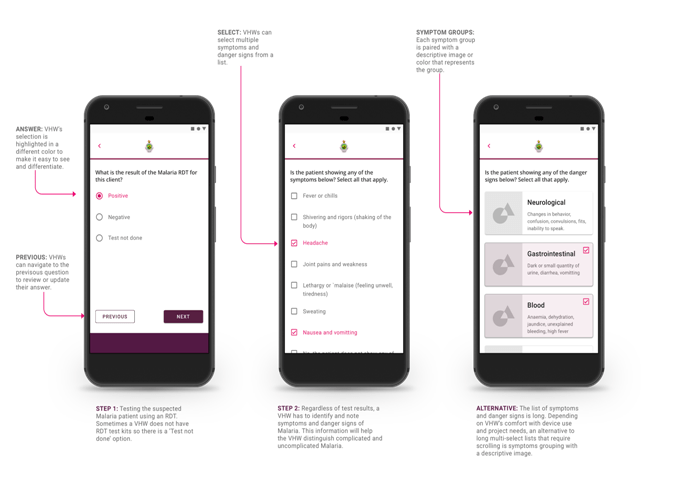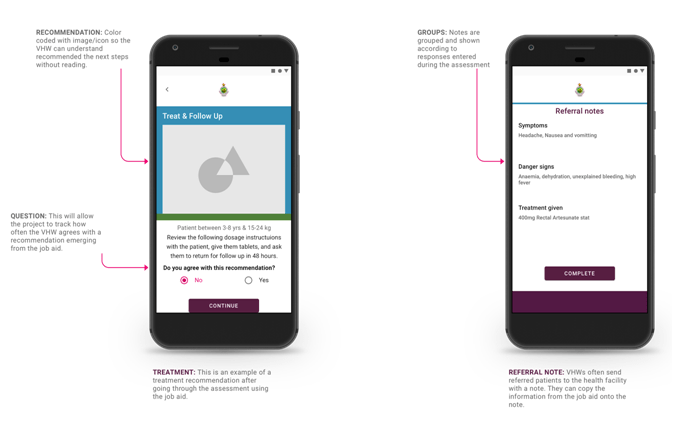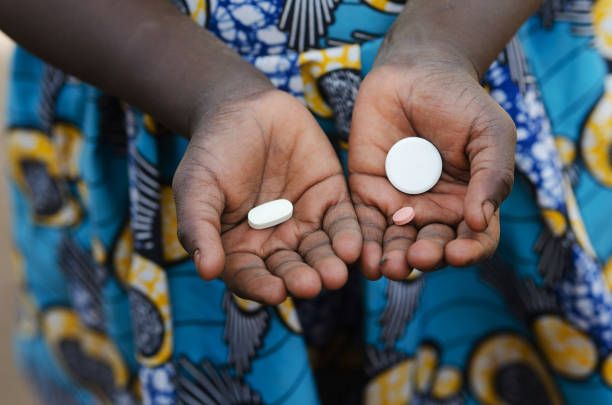Malaria remains one of the leading causes of death in the world, especially in sub-Saharan Africa. This is in spite of nearly half of the world declared malaria-free and treatable with medication.
The region carried the most malaria burden in 2020, accounting for 95 percent of all cases and 96 percent of all deaths.
Nearly 80 percent of the deaths in this region occur in children under age five.
Viamo supports community efforts to harness communication as a powerful tool for change, specifically in public health as we assist communities to reach the World Health Organization’s zero-malaria goal.
In the midst of a global shift towards mobile health (mHealth), Viamo’s digital health solutions make it easy for organizations to sustain access to the most vulnerable populations worldwide providing them with critical healthcare services.
Using the Viamo Platform to increase hygienic practices adoption in Mali
A key contributor to Mali’s death rate is malaria, according to the US Centers for Disease Control and Prevention. But progress has been made in combatting the disease over the past 15 years.
As COVID-19 spread, public resources in Mali and many other countries ended up being directed towards combating the pandemic, leaving established threats such as malaria sidelined.
Together with the Bayer Foundation and London School of Hygiene and Tropical Medicine (LSHTM), Viamo developed on-demand health messages that were hosted on the Viamo Platform to educate people about disease control, personal hygiene and how to reduce the spread of malaria. This included using measures that help reduce the spread of not only malaria but COVID-19, as well.
Mobile phone users were able to access public health content approved by the Mali Ministry of Health by dialing a toll-free number.
More than 2 million messages were listened to, and the number of people practicing preventive measures at home increased by 54 percent. The number of people choosing to get a test when they felt they had a fever rose by 34 percent.
”Building on this success in Mali, we are excited to once again collaborate with LSHTM and support the expansion of the program into a second sub-Saharan country, Malawi, where there is no malaria-specific content on the [Viamo Platform’s] ‘3-2-1’ helpline.
Dr Monika LesslExecutive Director of the Bayer Foundation
Implementing accessible digital trainings and campaigns to raise awareness
The US government’s End Malaria Faster strategic plan seeks to eradicate malaria in our lifetime, using innovative approaches to increase education and access to health resources in hard-to-reach populations.
Viamo is supporting this approach with USAID-funded programs in Mozambique at the central, provincial, district and community levels.
Together with a consortium of local organizations, the Fighting Malaria with Social and Behavioral Change (FMSBC) project will increase the adoption of malaria prevention and treatment behaviors in target areas by using evidence-based and theory-driven social and behavioral change activities.
The program will give communities insight into the work of the Ministry of Health and local stakeholders. It will also provide them with high-quality interventions, especially capacity building to improve technical skills and knowledge at all levels of the health system.

Digital Training malaria module for Community Health Workers: How might the digital job aid support Volunteer Health Workers to diagnose and differentiate complicated and uncomplicated Malaria?
With Viamo’s digital campaigns, digital surveys, and digital training services, participants will be able to conduct, interpret, and apply qualitative and quantitative analyses.
As a result, teams can enhance the monitoring and evaluation and ultimately the efficacy of interventions, materials and delivery.
- Integrated Social Behavior Change Communication: A five-year partnership with Programa Inter-Religioso Contra a Malaria (PIRCOM) will increase health message reach, recall and quality. It will develop an integrated health SBC package, including malaria, in which messages are disseminated by faith leaders and community radios.
- PMI VectorLink Project: In partnership with Abt Associates, VectorLink provides expert technical assistance for the planning and implementation of indoor residual spraying and other life-saving malaria vector control interventions in Africa in order to reduce malaria mortality.
- Mozambique Integrated Malaria Program (IMaP): By implementing proven malaria interventions at the community and facility level, strengthening management capacity of the community and implementing malaria interventions jointly with Chemonics and IMap in four high malaria burden provinces of Mozambique, we are contributing to reducing malaria mortality, morbidity and parasitemia.

Digital Training malaria module: How might we support Volunteer Health Workers to provide information?
Digital platforms impact malaria reduction
Viamo provided infrastructure and technical support to researchers from BioMedCentral (BMC) Public Health to test whether technology, digital communication and surveys could improve healthy behaviors for caregivers of children under the age of five.
The study used mHealth interventions to target caregivers of children living in rural Ghana for 12 months.
The prevalence of childhood malaria was reduced by more than 20 percent. For children in the control group, there was only a 6 percent reduction.
As a result of Viamo’s services, development partners can change the face of patient-provider relationships, strengthen health systems, empower patients and improve health outcomes in hard-to-reach low-resource communities.
Using simple mobile phones to deliver case management, disease prevention, diagnostics, audio job aids, monitoring and surveillance, data management, Viamo and its partners are proactively addressing challenges and taking advantage of opportunities to eliminate malaria within our lifetime.




